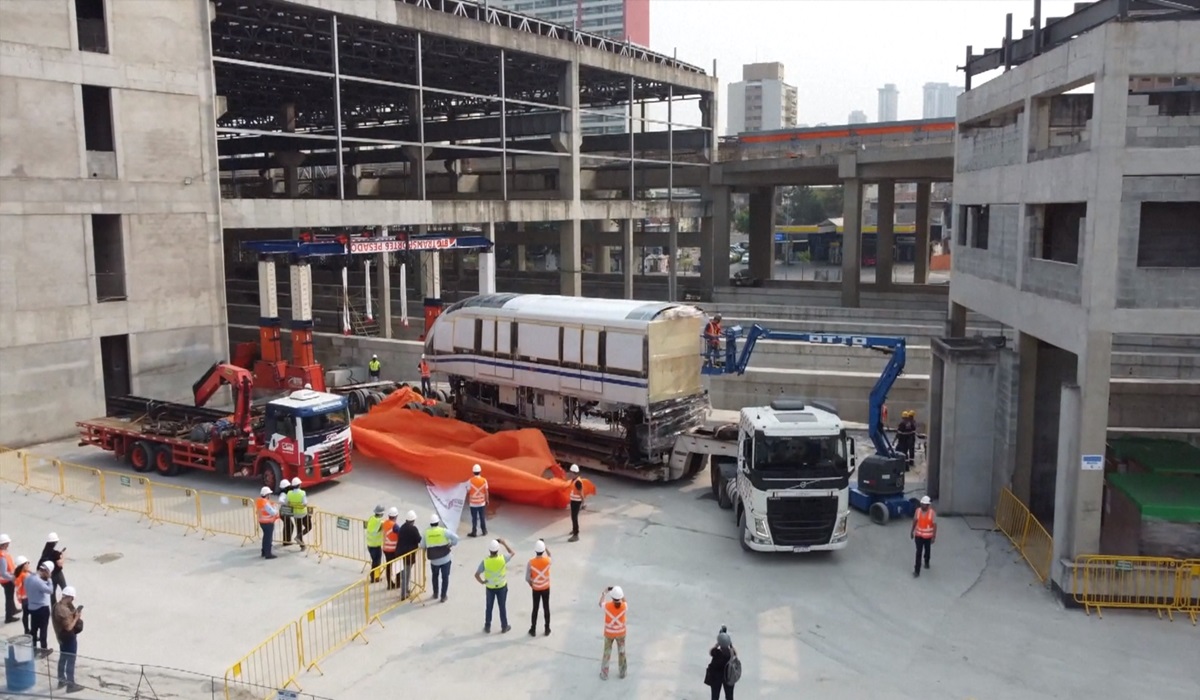BYD Delivers First Trains for São Paulo’s Monorail: A New Era for Brazilian Transit
- TDS News
- Business
- D.O.C Supplements - Trending News
- Europe
- October 8, 2024

Chinese company BYD, known globally as the largest electric vehicle manufacturer, has recently achieved a significant milestone by delivering the first set of trains for São Paulo’s long-anticipated monorail system. While many around the world recognize BYD for its dominance in the electric car industry, in China, the company has earned a reputation as a multi-faceted mega-corporation producing everything from buses to solar energy solutions. With this latest venture into the train industry, BYD is expanding its horizons yet again, and its role in bringing Brazil’s long-delayed Gold Line project closer to fruition is emblematic of its global reach and diversified expertise.
The delivery of these trains marks a critical step forward in São Paulo’s transportation infrastructure. Originally planned to be operational for the 2014 World Cup, the monorail’s completion has been delayed for over a decade. However, with BYD stepping in, there is renewed hope that the line will be ready by 2026, as promised by the state government. São Paulo Governor Tarcísio de Freitas, after inspecting the first train, praised the partnership with China and expressed enthusiasm for further collaboration in expanding the region’s metro system. For Brazil, having BYD at the helm of such a monumental project underscores the level of confidence the government has in the company’s expertise and ability to execute large-scale infrastructure projects.
For BYD, this foray into the train industry is not just another expansion of its product line; it represents a strategic move into a sector that could define the future of sustainable urban transportation. Known for integrating cutting-edge technology into its products, BYD’s trains come with features like fully automated systems and air suspension, ensuring comfort and efficiency for passengers. Tyler Lee, President of BYD Brazil, highlighted these advancements, particularly emphasizing the driverless design of the monorail and the smooth ride passengers can expect. This showcases how the company is bringing its forward-thinking approach, which has been so successful in the electric vehicle market, into the realm of mass transit.
The significance of being chosen by the Brazilian government to deliver trains for such a high-profile project cannot be overstated. Brazil is the largest economy in South America, and São Paulo is its economic powerhouse. Securing this deal puts BYD at the forefront of Brazil’s urban mobility revolution. With São Paulo’s traffic congestion frequently making headlines and its current transportation infrastructure struggling to keep up with demand, the Gold Line promises to alleviate some of these pressures by offering a faster, more reliable alternative to buses and cars. Commuters like Matheus Brandao, a TV camera operator, and Mariana Gold, a university student, have expressed optimism about the monorail’s potential to ease daily commutes and reduce the notorious traffic jams that plague the city.
The choice of BYD also speaks to the broader relationship between China and Brazil. As Governor Freitas hinted, this partnership could pave the way for more Chinese investment in Brazil’s infrastructure. With China’s well-documented expertise in building expansive metro and train systems domestically, Brazil’s decision to rely on BYD and other Chinese firms could mark the beginning of a new era of cooperation in transport development. This move could also inspire other Latin American countries to seek out Chinese expertise in modernizing their public transit systems.
For BYD, delivering these trains represents much more than just fulfilling a contract. It is a demonstration of their ability to enter new markets and industries with confidence and technological innovation. While the world may know BYD as a leader in electric vehicles, its diversification into trains signals its ambition to become a global leader in sustainable transportation across multiple sectors. By partnering with São Paulo on the Gold Line project, BYD is setting the stage for further international growth and solidifying its status as a transformative player in the global transportation industry.
As São Paulo looks to the future, the successful completion of the Gold Line will serve as a reminder of the city’s potential when it embraces forward-thinking solutions. For BYD, this project stands as proof that the company’s influence extends far beyond China’s borders and that its expertise in transportation can help solve urban mobility challenges worldwide.








